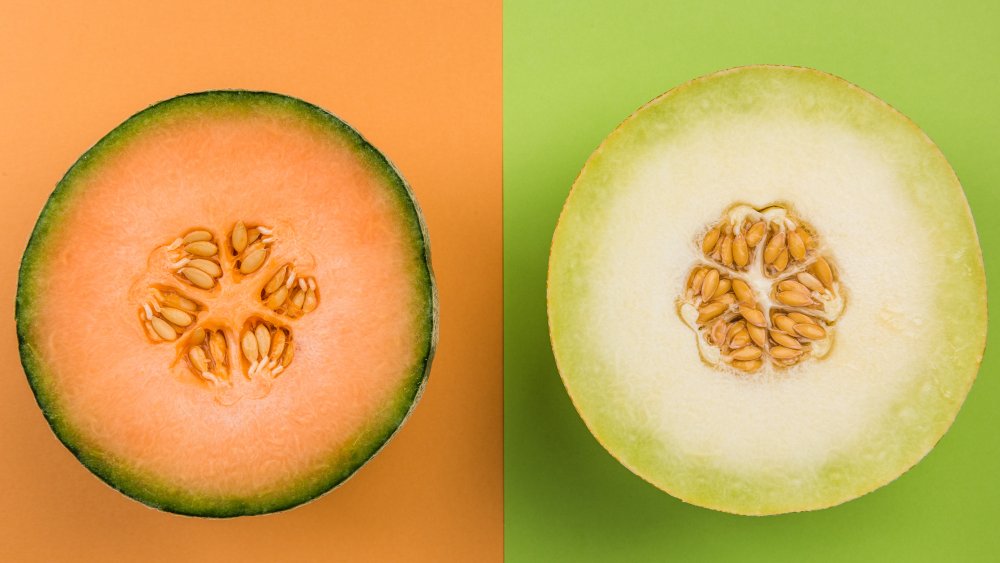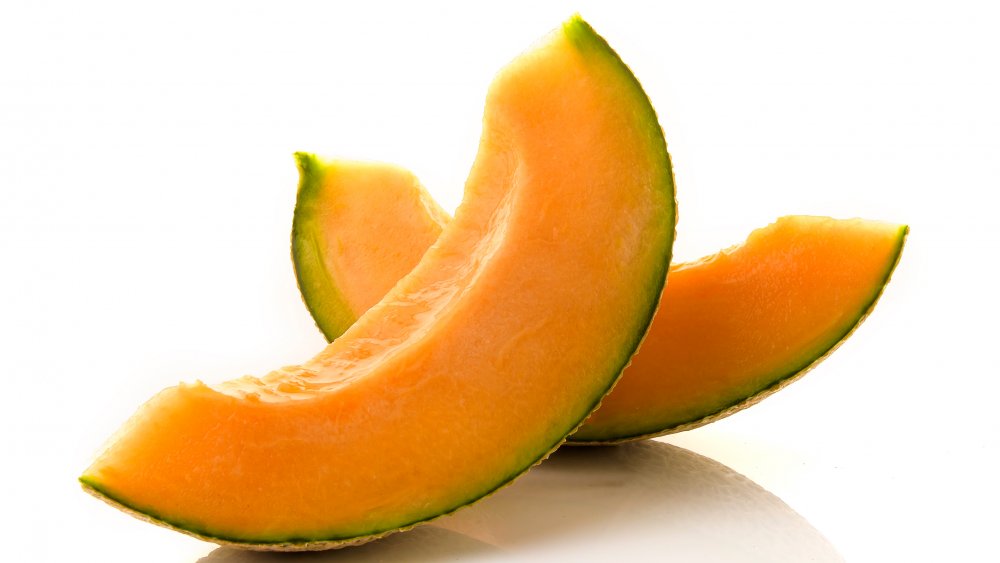The Real Difference Between Cantaloupe And Honeydew Melon
According to the Mayo Clinic, both cantaloupe and honeydew melons are part of the muskmelon family, which originated in the Middle East. When picking either cantaloupe or honeydew melons to eat, you should choose a firm fruit that is heavy for its size, with no obvious signs of bruising. They can be stored at room temperature until you cut them, after which they should be kept in the refrigerator in an airtight container for up to five days. You should always wash and scrub the rind of your melon before you cut it to remove any dirt or bacteria on the outside.
Spoon University says that what people in the United States call cantaloupe is not actually a true cantaloupe. Actual cantaloupes are not commonly found in the U.S., as they are difficult to grow commercially. Real cantaloupes, or European cantaloupes, are slightly sweeter and have a differently-patterned rind than the melons sold in the U.S. under their name. They're similar enough, though, that most people don't really notice the swap.
How to decide which melon to buy
If you're trying to choose between purchasing a honeydew or cantaloupe melon or don't remember which your recipe called for, you really can't go wrong with either choice. Healthline reports that both fruits contain almost the exact same amount of calories, water, fat, protein, carbs, and fiber as one another. They are both sweet and juicy when ripe, and can be easily substituted for one another in most recipes. These melons are rich in fiber and contain antioxidant and anti-inflammatory qualities, and may help reduce skin damage done by overexposure to the sun.
While honeydew and cantaloupe melons do have many similar qualities since they are part of the same family, there are a few differences between the two that may impact your decision on which to buy. Honeydew is a slightly sweeter and firmer melon than cantaloupe, and features light green flesh, while cantaloupe has orange-colored, softer flesh.
Healthline notes cantaloupe may be the slightly more nutritious choice, due to the melon's higher levels of vitamin C and vitamin A compared to honeydew. However, the outlet recommends avoiding cantaloupe if you are or are going to become pregnant, as these melons are more likely to have harmful bacteria on the rind than their green counterpart.

